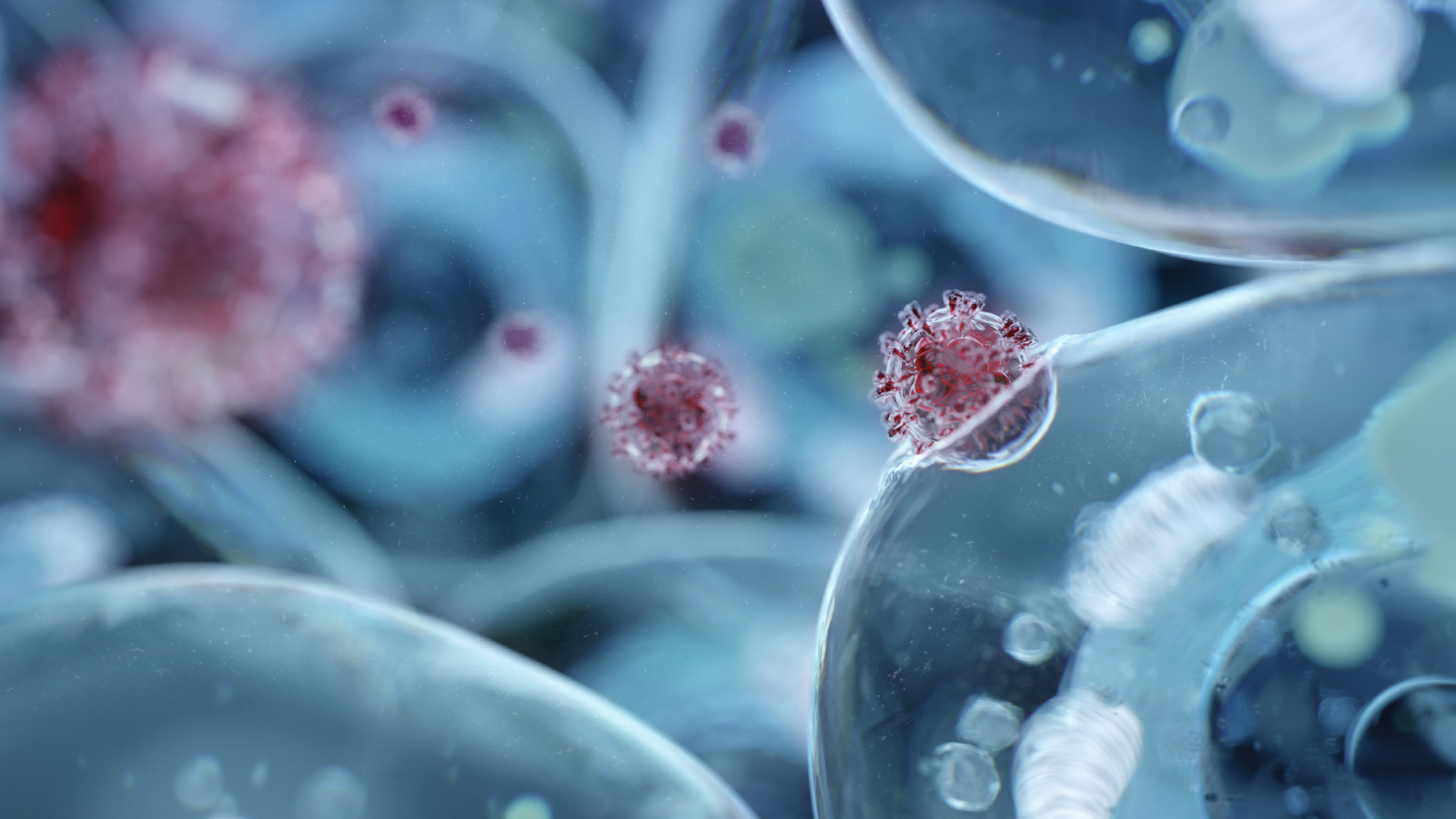Lars Plate, assistant professor of chemistry and biological sciences, was awarded $50,000 from the Research Corporation for Science Advancement and the U.S. Department of Agriculture for his work to devise ways to lessen threats from zoonotic diseases—diseases that migrate from animals to people.

According to the RCSA, most emerging diseases that affect humans are zoonotic. The emergence of COVID-19 exposed a need for a deeper understanding of how animals, people, pathogens and their environments interact. That information could make detecting emerging diseases—and developing countermeasures—easier and faster.
Plate, in collaboration with Kristin Koutmou from the University of Michigan and Gisselle Medina from the USDA Agricultural Research Service, will use the grant to fund their project: Impact of Synonymous Mutation on Translation Speed and Protein Folding During Host Adaptation. They will investigate hidden ways that various types of mutations can affect the fitness of a virus.
“As we see from the current COVID-19 pandemic, RNA viruses rapidly evolve to counter shifts in their environment, for example due to immune pressures or when transmission occurs between different hosts,” Plate said. “Individual changes in the viral RNA sequences do not always produce changes in the encoded viral proteins, also known as synonymous mutations. These synonymous mutations are generally believed not to affect the fitness of the virus. However, synonymous mutations are a widely used way to produce live-attenuated vaccines—strains of a virus that are weakened enough to not lead to disease while still eliciting a protective immune response.
“This information should help the design of live-attenuated vaccines and better predict spillover events of viruses between different host species—for example, animals to humans,” Plate said.
Plate’s collaborative research is a part of the ongoing Scialog: Mitigating Zoonotic Threats Initiative.
“This project ties in with broader efforts in my research group to understand how viruses take advantage of protein quality control pathways in host cells during infections,” Plate said. “The Scialog MZT workshop was an exciting venue for meeting researchers … both from academic institutions and the USDA, to then tackle research problems that are made possible through our collaboration.”
The Scialog MZT Initiative is scheduled to meet at a conference in September to discuss challenges in research and exchange knowledge.
Plate holds a B.S. in chemistry from the Massachusetts Institute of Technology. He completed his Ph.D. in molecular and cell biology in 2013 at the University of California Berkeley. Before joining Vanderbilt University in 2017, he completed postdoctoral training at the Scripps Research Institute.
More on the Scialog: Mitigating Zoonotic Threats Initiative
Scialog is short for “science + dialog.” Created in 2010 by RCSA, the Scialog format supports research by stimulating intensive interdisciplinary conversation and community building around a scientific theme of global importance. Planned before the COVID pandemic, the Mitigating Zoonotic Threats Initiative has brought together researchers from a variety of disciplines and interests, including biology, chemistry, environmental science, computer modeling, ecology, epidemiology, physics, public health and veterinary science.
